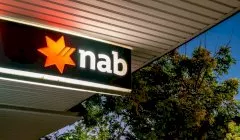Invest
Aussie households spent $368 a week on transport after petrol price surge
Fuel costs have increased by 40 per cent over the past year, a new report from the Australian Automobile Association has revealed.
Aussie households spent $368 a week on transport after petrol price surge
Fuel costs have increased by 40 per cent over the past year, a new report from the Australian Automobile Association has revealed.

The average Aussie household spent a total of $368.21 per week on transport costs during the March quarter, including $95.17 on fuel costs.
The latest Transport Affordability Index from the Australian Automobile Association (AAA) also indicated that transport costs accounted for 14.7 per cent of household income on average nationally.
Capital city households spent $401.05 a week on transport costs or $20,855 over the course of a year, while households in regional areas had costs of $330.67 per week or an annual total of $17,195.
“The latest results include the impact of global price shocks flowing from the war in Ukraine, and changing vehicle purchase patterns, which in turn impact car repayments,” commented AAA MD Michael Bradley.

“Rising fuel prices continue to be a significant contributor to cost of living pressures across both regional and metropolitan Australia.”
Last week, the Australian Bureau of Statistics (ABS) reported that fuel was one of the biggest contributors to CPI growth during the March quarter as the automotive fuel series of the CPI reached a record level for the third quarter in a row.
According to the ABS figures, fuel costs were up by 11.0 per cent on a quarterly basis and 35.1 per cent annually.
Over the past year, the AAA said that weekly fuel costs had risen by an average of $26.49 to $93.87 across the capital cities. Hobart had the highest capital city fuel cost of $100.18 per week, ahead of Sydney ($94.80), Darwin ($94.36) and Brisbane ($93.93).
Costs for fuel were even higher in regional areas at a weekly average of $96.65, with Bunbury ($116.31), Geelong ($110.69) and Launceston ($109.38) ranking as the most expensive.
Car loan repayments decreased by $20.59 per week compared to the previous quarter as an increased proportion of new car buyers chose cheaper vehicles but still accounted for 40 per cent of all transport costs with a weekly average of $149.47.
The AAA found that Sydney was the most expensive capital city for total weekly transport costs ($474.43), ahead of Melbourne ($447.83) and Brisbane ($445.69).
Regionally, Bunbury was the most expensive ($352.06), followed by Alice Springs ($350.45) and Geelong ($347.69).
In terms of share of household income, transport costs in Launceston (18.1 per cent), Hobart (17.9 per cent) and Brisbane (17.1 per cent) were all well above the national average.

Spending
Household Spending Pops, Rate Hike Looms: A CFO Playbook from an Australian Retail Case
Fresh ABS data shows household outlays running hotter than expected, particularly in services—stoking calls for an RBA move as early as February. For operators, the macro headline is simple; the ...Read more

Spending
State Street economist comments on softer-than-expected CPI data
In light of the latest Consumer Price Index (CPI) data release, Krishna Bhimavarapu, APAC Economist at State Street Investment Management, has provided insight into the implications for the Australian ...Read more

Spending
Moneysmart study reveals Gen Z women more concerned about finances than men
A new research conducted by ASIC’s Moneysmart has unveiled the heightened levels of stress and concern regarding finances and the cost of living among Australian Gen Z women compared to their male ...Read more

Spending
The cost of politeness: Aussies out of pocket by $1,350 due to 'awkward tax'
It's the time of year when Australians dive into their pockets for festive events and gatherings, yet a recent study by PayPal suggests that many are too polite, or perhaps too embarrassed, to ask for ...Read more

Spending
Aussies can ‘NAB Now Pay Later’ with the last major bank to embrace BNPL
NAB has become the latest bank to enter the BNPL market. Read more

Spending
Voters say reducing the cost of living should be the government’s top priority
Aussies have ranked high cost of living as the top issue that needs to be addressed by the next government. Read more

Spending
Bodies back Labor’s commitment to stronger BNPL regulation
All parties should commit to stronger regulations for the BNPL sector, according to Financial Counselling Australia. Read more

Spending
Household spending surges led by retail and recreation
Spending on retail, recreation and hospitality have continued to climb as COVID-19 case numbers and restrictions have eased. Read more

Spending
Household Spending Pops, Rate Hike Looms: A CFO Playbook from an Australian Retail Case
Fresh ABS data shows household outlays running hotter than expected, particularly in services—stoking calls for an RBA move as early as February. For operators, the macro headline is simple; the ...Read more

Spending
State Street economist comments on softer-than-expected CPI data
In light of the latest Consumer Price Index (CPI) data release, Krishna Bhimavarapu, APAC Economist at State Street Investment Management, has provided insight into the implications for the Australian ...Read more

Spending
Moneysmart study reveals Gen Z women more concerned about finances than men
A new research conducted by ASIC’s Moneysmart has unveiled the heightened levels of stress and concern regarding finances and the cost of living among Australian Gen Z women compared to their male ...Read more

Spending
The cost of politeness: Aussies out of pocket by $1,350 due to 'awkward tax'
It's the time of year when Australians dive into their pockets for festive events and gatherings, yet a recent study by PayPal suggests that many are too polite, or perhaps too embarrassed, to ask for ...Read more

Spending
Aussies can ‘NAB Now Pay Later’ with the last major bank to embrace BNPL
NAB has become the latest bank to enter the BNPL market. Read more

Spending
Voters say reducing the cost of living should be the government’s top priority
Aussies have ranked high cost of living as the top issue that needs to be addressed by the next government. Read more

Spending
Bodies back Labor’s commitment to stronger BNPL regulation
All parties should commit to stronger regulations for the BNPL sector, according to Financial Counselling Australia. Read more

Spending
Household spending surges led by retail and recreation
Spending on retail, recreation and hospitality have continued to climb as COVID-19 case numbers and restrictions have eased. Read more








